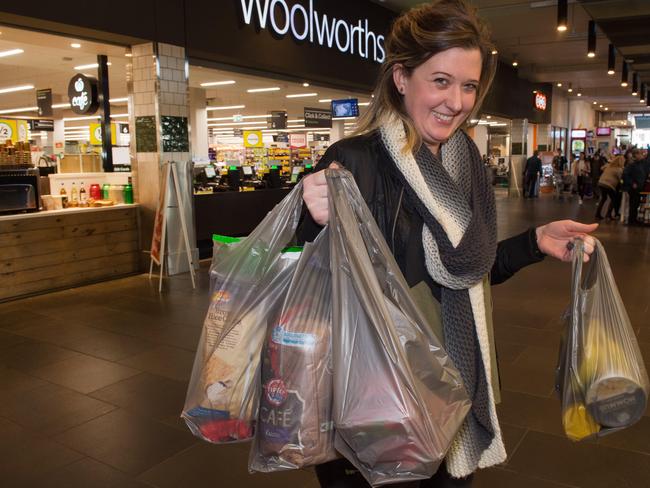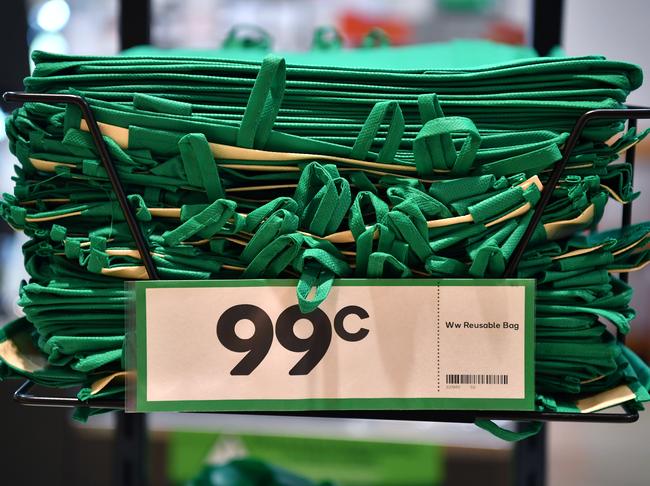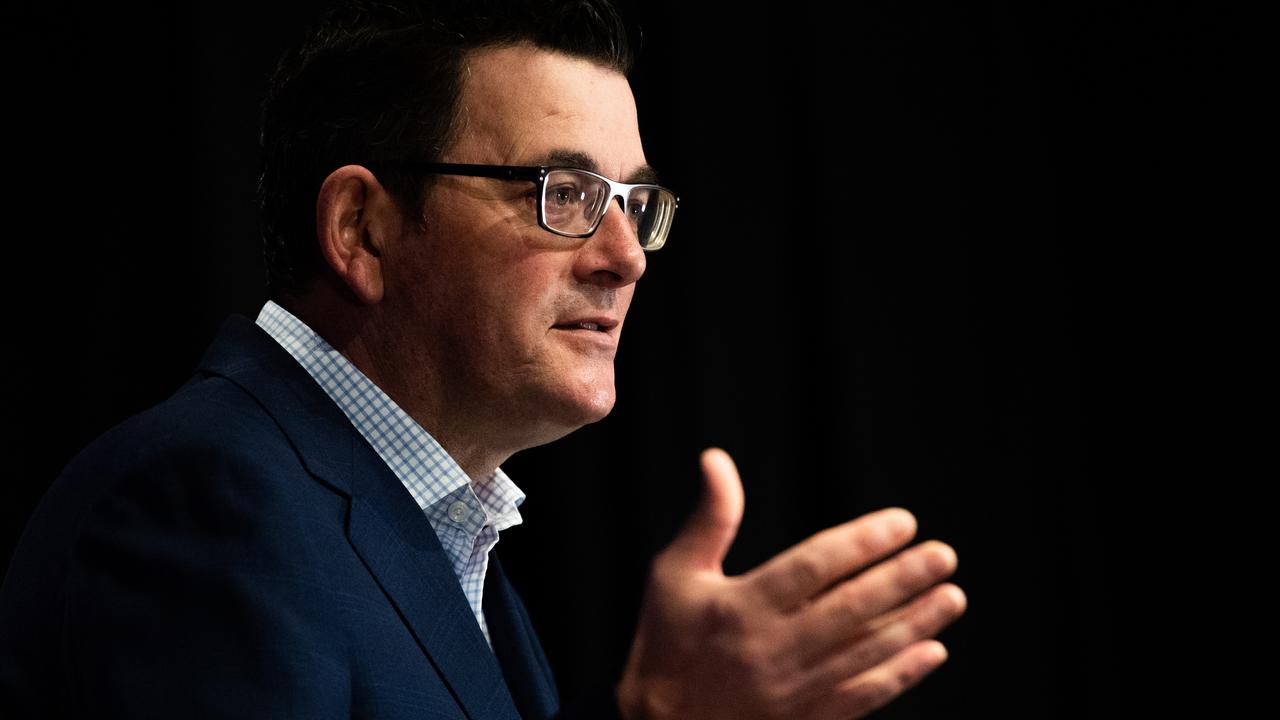Rita Panahi: Supermarkets the big winners from plastic bag ban
SUPERMARKETS have really hit the jackpot with self-checkout and plastic bag bans. But don’t dare complain because this profitable line of corporate virtue signalling is a sign of progress and supposedly enjoys widespread support, writes Rita Panahi.
Rita Panahi
Don't miss out on the headlines from Rita Panahi. Followed categories will be added to My News.
SUPERMARKETS have really hit the jackpot with self-checkout and plastic bag bans sure to boost their profitability.
From Wednesday, Woolworths supermarkets throughout Victoria as well as BWS, Metro, petrol stations and Big W will ban the use of what have been erroneously labelled “single-use plastic bags” and will charge shoppers for the pleasure of carrying their purchases in thicker plastic bags.
But don’t dare complain because this profitable line of corporate virtue signalling is a sign of progress and supposedly enjoys widespread support.
SHOPPERS WILL SPEND MORE AS WOOLWORTHS DUMPS PLASTIC BAGS
PLASTIC BAG BAN: WHAT DOES IT MEAN FOR YOU?
CROWN CASINO TO PHASE OUT PLASTIC
It’s a sign of how big business can take advantage of the gullibility of well-intentioned consumers.
Not only do an increasing number of shoppers dutifully scan and bag their own items, saving the likes of Woolworths and Coles a fortune in wages, but now we’ll be paying for the plastic or fabric bags needed to carry our groceries.


Woolworths will also charge customers receiving home deliveries a flat $1 fee to have their purchases in plastic bags or a stranger can come into your home and unpack your groceries on the kitchen bench for $3.50. No thanks.
Coles supermarkets, Coles Express, Liquorland and First Choice Liquor will start charging for reusable plastic bags from July 1.
Of course this is sold to the masses as some grand environmental gesture to counter the problem of oceans polluted with tonnes of plastic including discarded bags, cups, bottles and more.
But it’s not Australians who are dumping plastic bags and other rubbish in waterways in large numbers.
The fact is that the majority of the plastic in the world’s oceans come from five countries: China, Indonesia, the Philippines, Vietnam and Thailand. These five are contributing around one million tonnes of plastic trash to the seas each year, according to US environmental non-profit group Ocean Conservancy.
A comprehensive study of plastic pollution published in 2015 suggested that the waste produced by the top polluting countries was even higher.
The research published in the journal of science ranked the top 20 polluting countries and found that 192 countries produced 275 million tonnes of plastic and between 4.8 to 12.7 million tonnes of this waste washed into the sea in a single year. China was the worst culprit, responsible for 1.32 to 3.52 million tonnes, followed by Indonesia and the Philippines. Australia contributed less than 0.01 tonnes to ocean plastic pollution.
What sort of simple-minded mug believes that plastic bag bans in Australia will have any sort of impact in countries with poor sanitation practices where plastic is routinely dumped in the nearest waterway?
Well, who other than the leaders of state and territory governments who have all, with the exception of NSW, imposed plastic bag bans on their constituents which will come into force on July 1, except in Victoria where no date has been set.
If you really want to do something about limiting the amount of litter in Australia then you’d ban smoking, not plastic bags.
Cigarette-related litter is the single biggest source of litter found across Australia, according to the latest National Litter Index report which also showed that plastic bags represent about 1 per cent of litter.
Less than 13 per cent of us smoke, but cigarette butts account for about half of all litter and “remain a disproportionate percentage of all litter counted in Australia”.
Every day you will see smokers thoughtlessly dump the remnants of their cancer sticks in the nearest gutter, in the street or at the beach.
You can go to beautiful remote spots and still see evidence that a smoker was there before you.
VICTORIANS DIVIDED OVER BAN ON PLASTIC BAGS

But I’m yet to see anybody dump their stash of plastic bags in a stream or waterway — though, of course, there are thoughtless fools who don’t clean up after themselves.
If I had a dollar for every time I picked up a discarded plastic bottle or chip wrapper from the beach I’d have about $100, just a little over what it’ll cost me to pay for plastic bags each year.
In the average week I probably need about 10 bags for groceries and other purchases — all of which are reused as bin and dustbin liners which will now cost $78 a year.
Alternatively, I could use canvas bags for grocery shopping and then purchase plastic bin liners, Woolies have Iyc (If You Care) Waste bags for $7.65 for a pack of 30. Bargain.
No wonder Woolies were keen to beat their competitors and bring in their new plastic-not-so-fantastic policy today.
The term “single-use plastic bag” is misleading, given how many people re-use them as bin liners, to pick up dog poo, to wrap shoes in luggage and a plethora of other users.
To be fair to Woolworths and Coles, they are only getting ahead of the bag bans that will be enforced in Victoria shortly.
In the lead-up to the Northcote by-election, Dan Andrews’ government announced a plastic bag ban.
Labor still lost the seat to the wacky Greens but the rest of us will be paying for their efforts to ingratiate themselves to the Greenie inner-city constituents.
Rita Panahi is a Herald Sun columnist
MORE RITA PANAHI:


